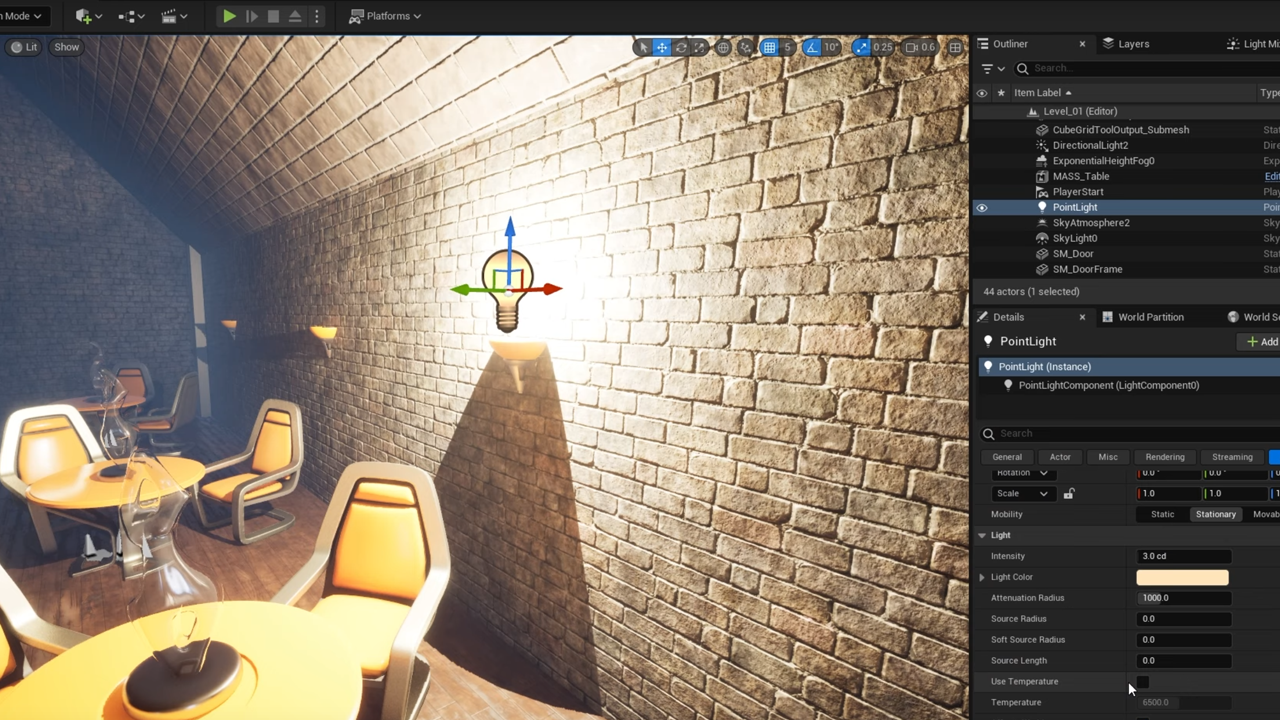In this article we’ll learn how to get into game development, the best ways of getting started, learning resources, job tips and tricks, and more!
Many gamers have played games merely as a passionate hobby and have fulfilling careers in other industries, but if you’re reading this article, I’m guessing you’d like to take your passion for games to the next level. However, just getting started can seem like a daunting undertaking, and from a quick Google, you might find that how to learn game development isn’t itself an easy question to answer. So, in this article I’m hoping I can help you with that, not only understanding what game development is and how to get started but also career advice on how to break into the industry on a professional level.
So, what is game development?

For the purposes of this article, I’m going to assume that you want to get your hands dirty building your own gameplay systems. This typically starts by learning how to use one or more game engines (game development software), it doesn’t have to include learning a coding language, as these days the big freely available engines (Unity, Unreal, Crytech, and Godot) all have visual scripting languages you can use as an alternative. That said, I’d be lying if I didn’t mention that knowing how to code, as well as knowing at least some basic concepts from math and physics doesn’t make a world of difference when it comes to successfully making good games within manageable timeframes.
Now for what game development isn’t: Always fun. Don’t get me wrong, it’s a very rewarding and engaging job, but it is still a job. A job that can at times be frustrating, tedious, and require an overwhelming amount of work. If you’re working alone or with a small team, make sure your first few games are scaled appropriately, look at your favorite indies made by 10 people or less, then try to make something similar but simplified (as you aren’t a veteran developer yet).
How to get into game development
The obvious way is to enroll in a game development course at a college or university, and if you’re approaching the end of your high school years and haven’t decided on a major yet, this is a great way to get started. Of course, getting a game development degree doesn’t have to be full-time or straight out of high school, there are plenty of institutions that offer remote learning at flexible schedules, or part-time colleges with in-person “night” and weekend classes. However, I’d argue that the absolute best way to learn how to be a game developer is to just start developing a game.
Pick a small idea you like, and choose an engine. You should check this guide on best video game engines for some good options or if you want more of a deep dive into the differences between the big two engines, check out my Unity vs Unreal Engine comparison. Throughout the process of making a game in your chosen engine, you will run into problems you don’t know how to solve, this will force you to slowly but surely figure it out by watching tutorials, reading guides and documentation, and repeatedly banging your head against your keyboard. Over time you’ll learn just as much this way as if you took a traditional degree. This can also help you build a great portfolio that shows your improvement. Degrees are great, and when applying for jobs they can be a great feather in your cap, but the portfolio is king, and what recruiters want to see more than anything is a prolific development portfolio with unique and inventive projects that are tidy and well presented. Another quick mention is joining a modding or volunteer game development community, while this typically won’t teach you to build a game from scratch, it does a good job teaching game design and level/content creation.
Video game development resources:
Another option is also to follow along with an online course, this is a great option for those who want either a cheap or completely free education at their own pace and schedule, while still learning everything necessary and more. I’ve already written an article titled Unity 3D tutorials for beginners so you can check that out for Unity engine-specific learning, and if you want one for Unreal check out Raul’s excellent Unreal Engine 5 tutorials guide, I’m sure we’ll have guides for Godot and perhaps even Cryengine. Until then, make sure you check out sites like LinkedIn Learning, Udemy, Skillshare, Coursea, and more.
After you have built up a decent portfolio and/or finished your degree/certification you can start applying to game development jobs. As of the publishing of this article, it’s pretty tough out there, with layoffs happening across the industry, thus increasing competition for the few jobs still on the market. But trying and potentially failing to get a job should be seen as another learning opportunity.
The standard procedure for game companies when hiring for a technical role these days is to do technical competency tests on their applicants. This can sometimes take the form of a technical interview where you’ll be asked a series of factual and analytical questions relevant to the role you’re applying for as well as the technology stack the company uses. Or it can be technical tests, typically 48-to-72-hour tasks where you’ll be given a brief and have to make one or more game systems, levels, 3D models, animations, VFX, shaders, tilesets, or UI from scratch. These tests and tasks are great for learning what companies expect from you if you’re new to the industry and give you a target list of things to learn to better prepare you for future interviews and tests. Plus you might be building systems in these tests you wouldn’t otherwise prioritize in your personal projects that can be reused later.
Lastly, if you’re willing and able to work for cheap or free there’s always the option of applying for an internship in game development. Internship programs typically have a lower barrier to entry as what’s expected in terms of experience and skill is far lower, however, many internship programs do still have tough competition (especially the paid ones) or require that you are in your last year of university studying programming or game design, ruling out self-taught developers. You can also expect to need to complete technical tests and start in a probationary period even with internships.
That’s all for now, you’ll find more in-depth guides on individual topics surrounding getting into game development already live here on Razzem, and in the future, I plan to write about technical interview preparation, best practices to keep in mind for technical tests, and more.





